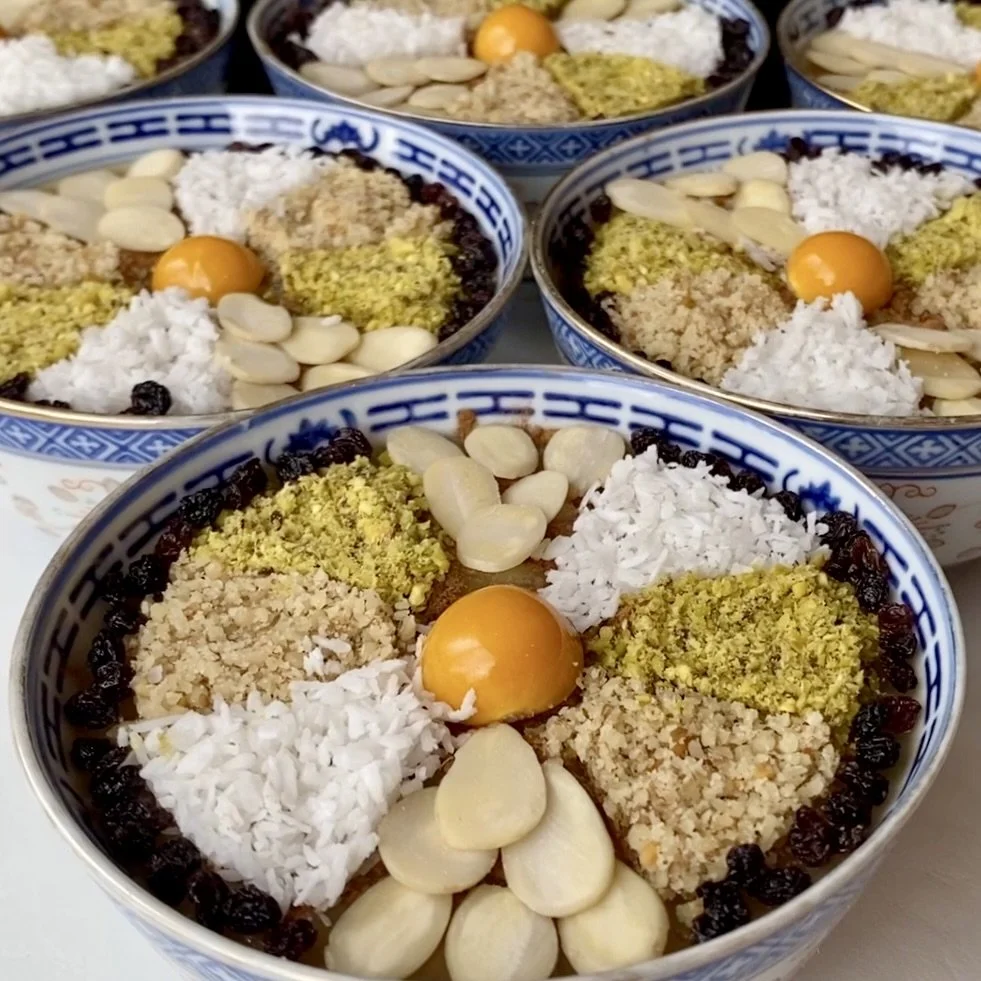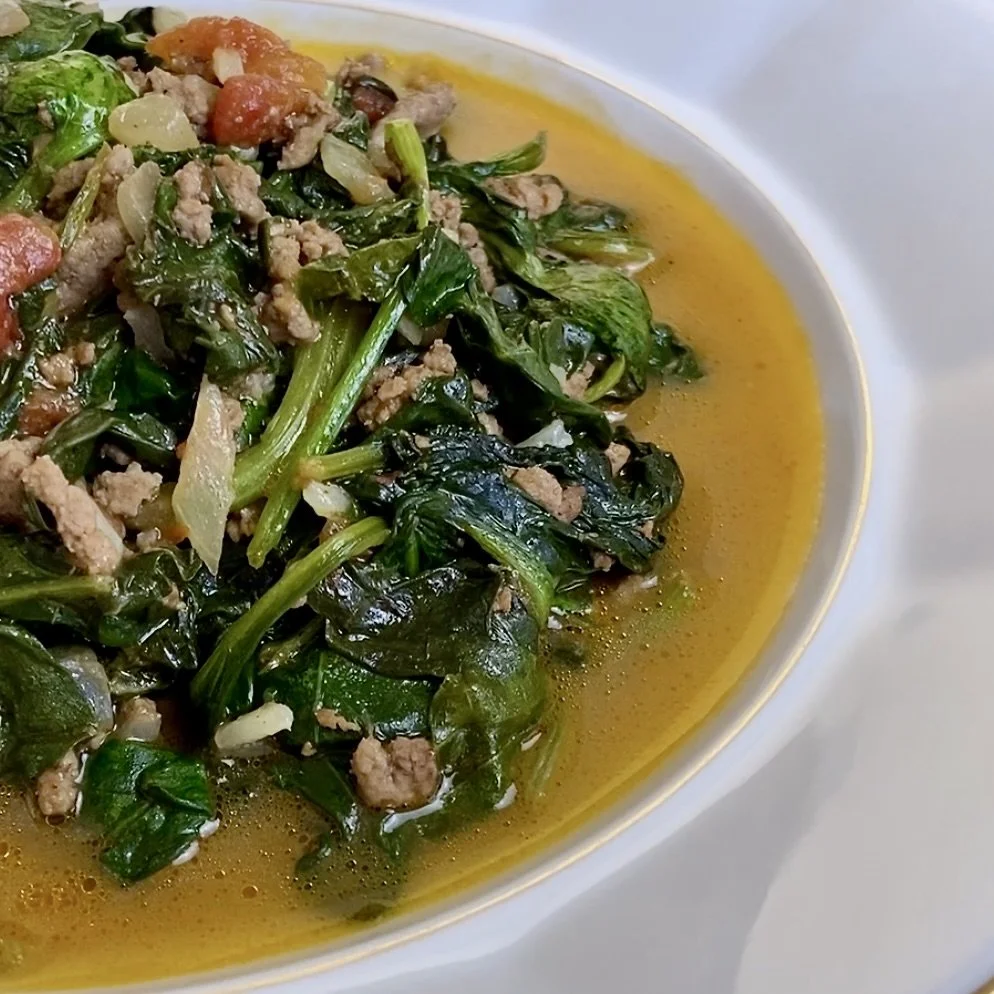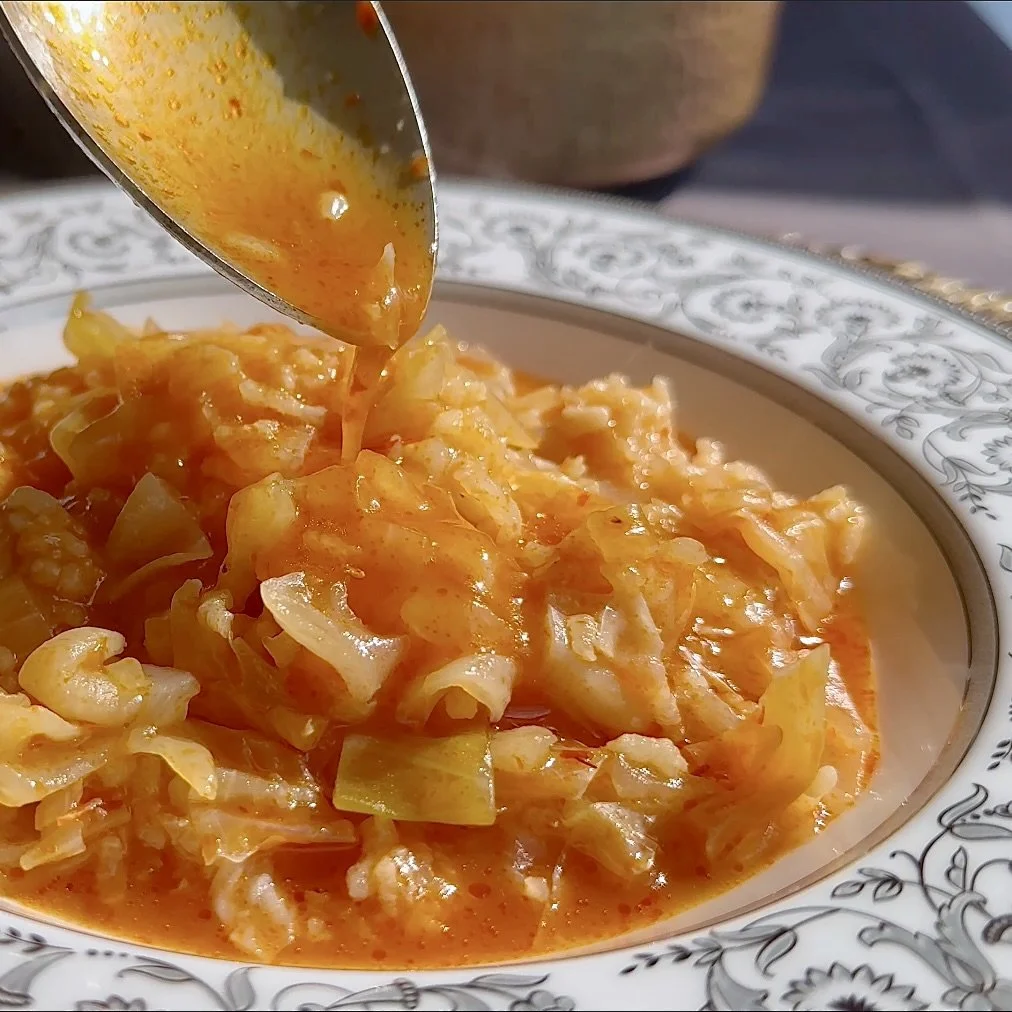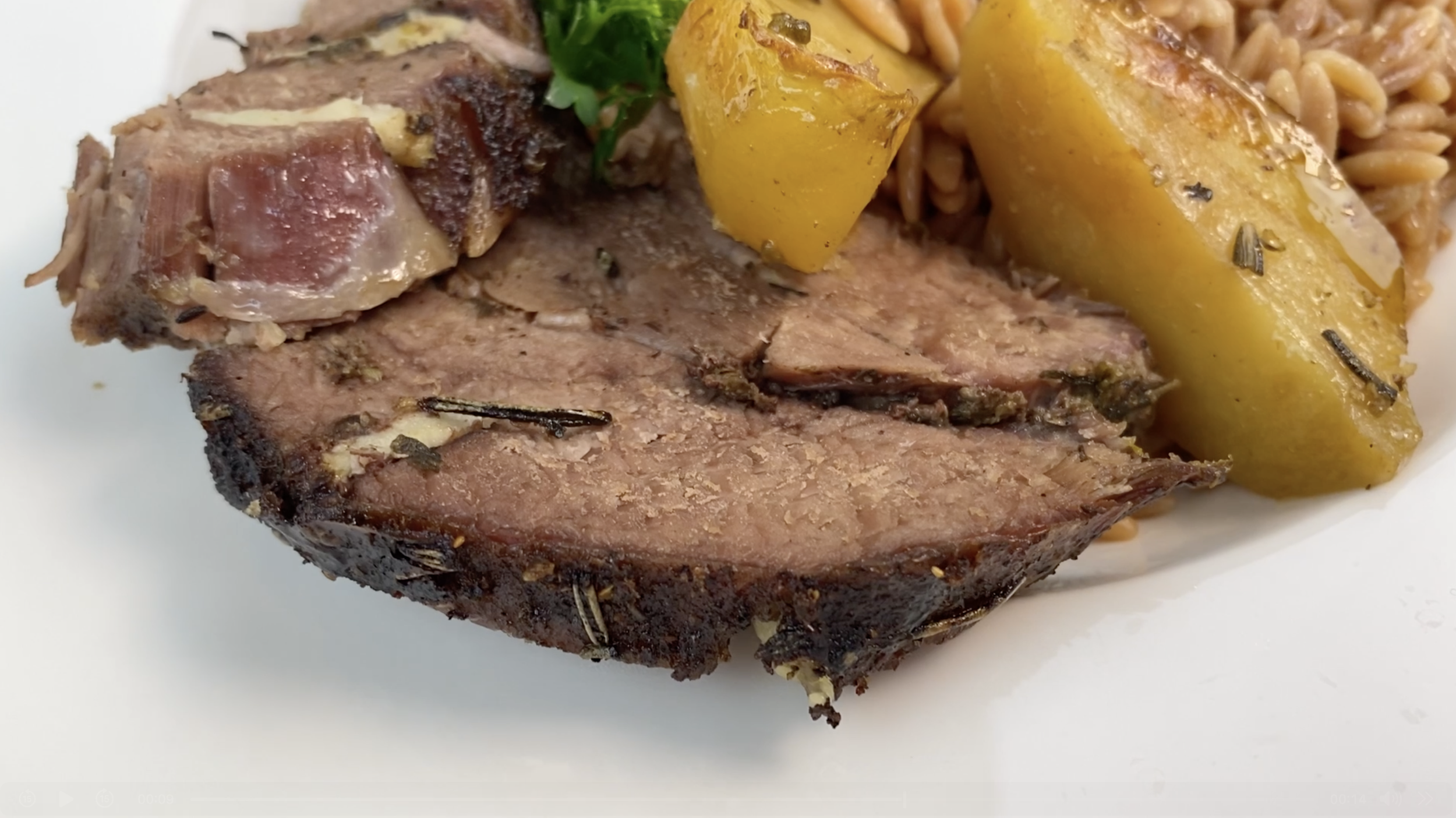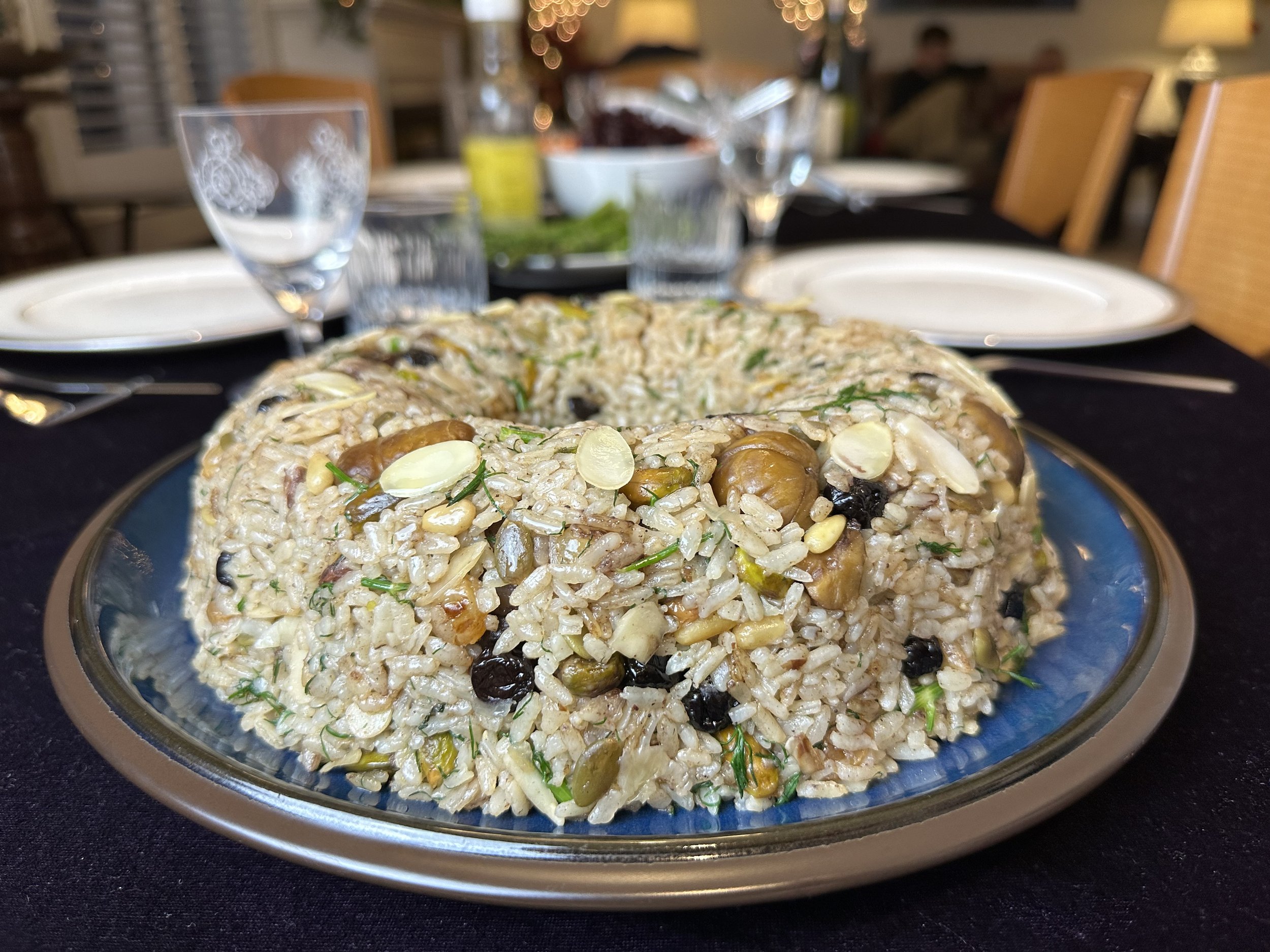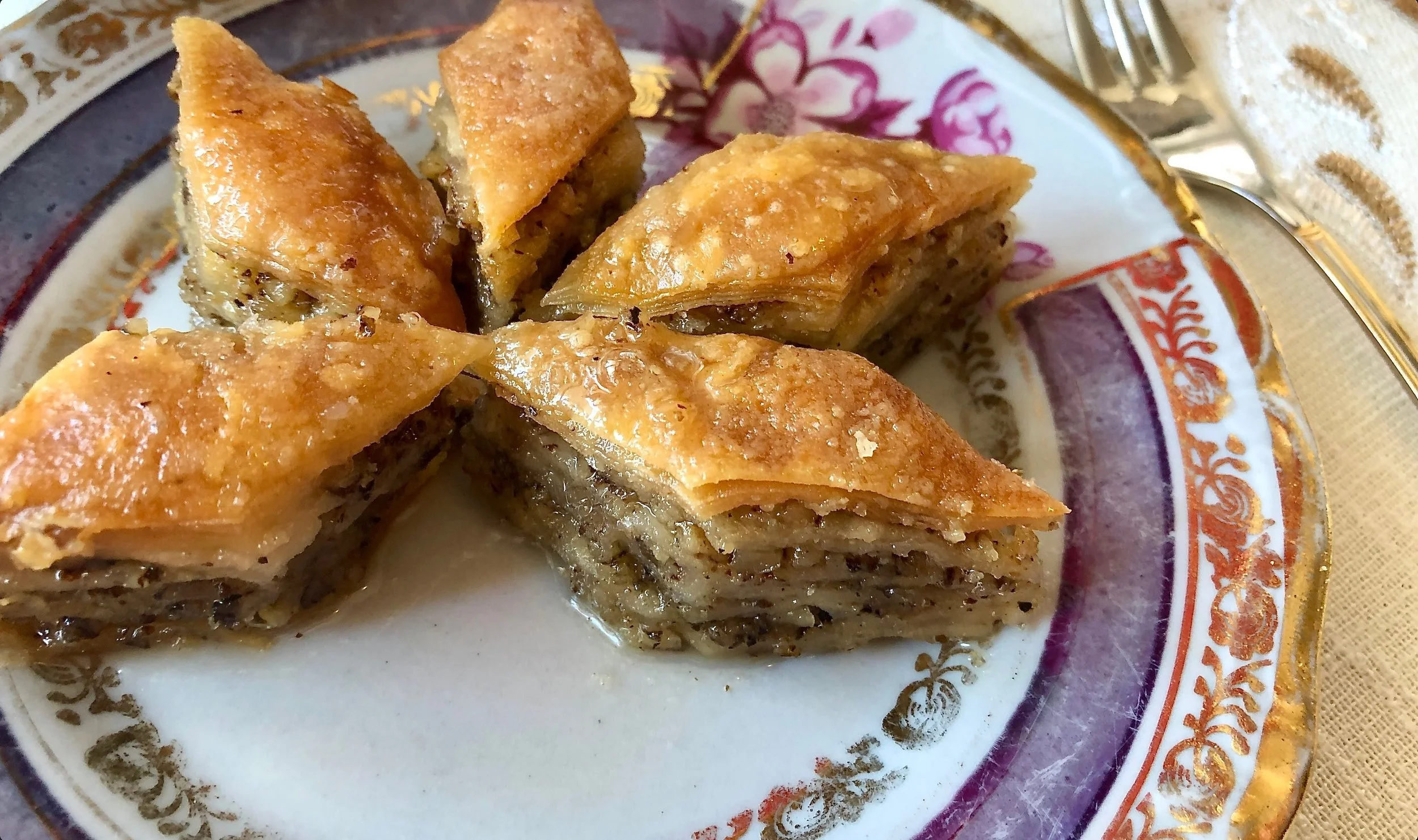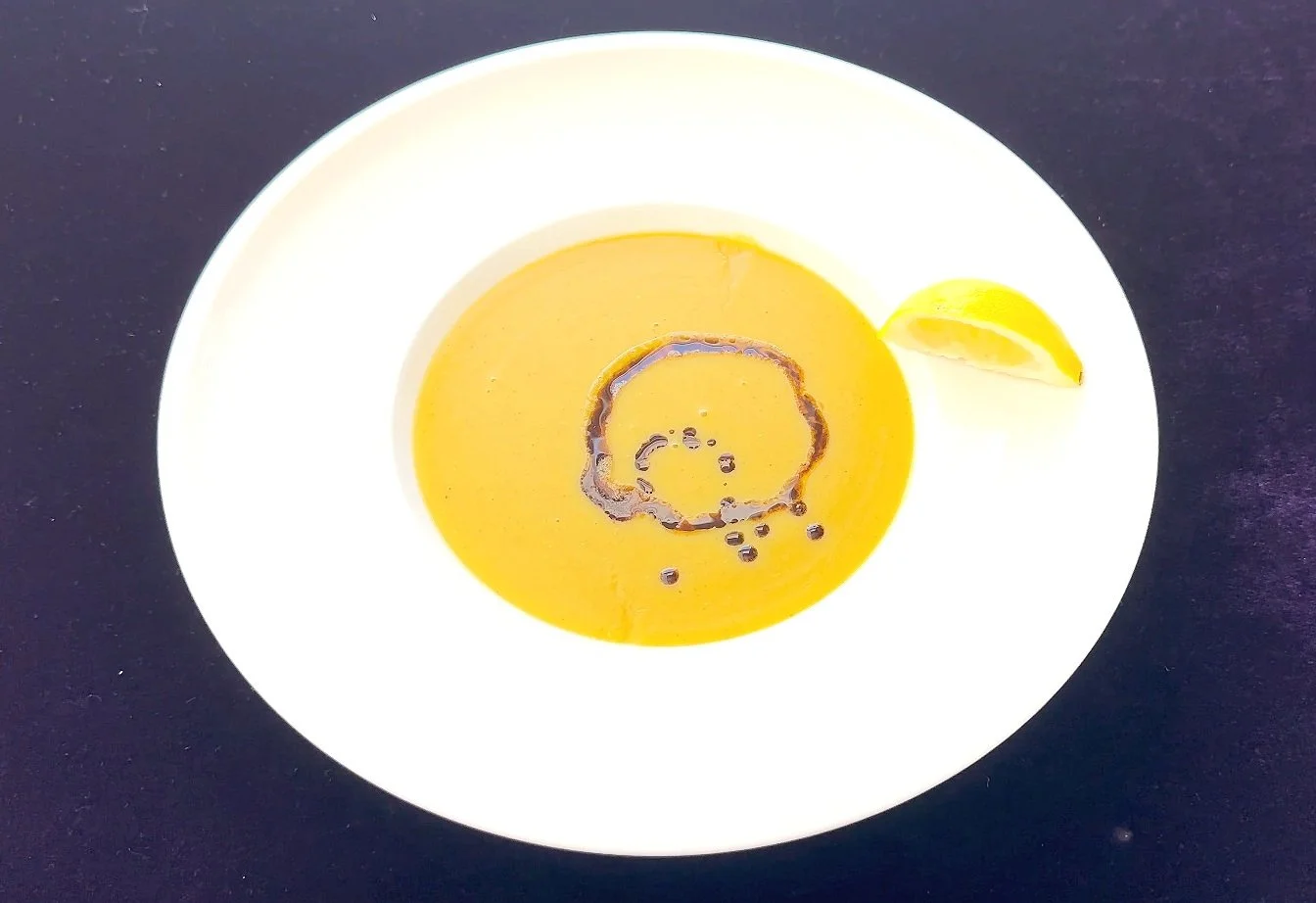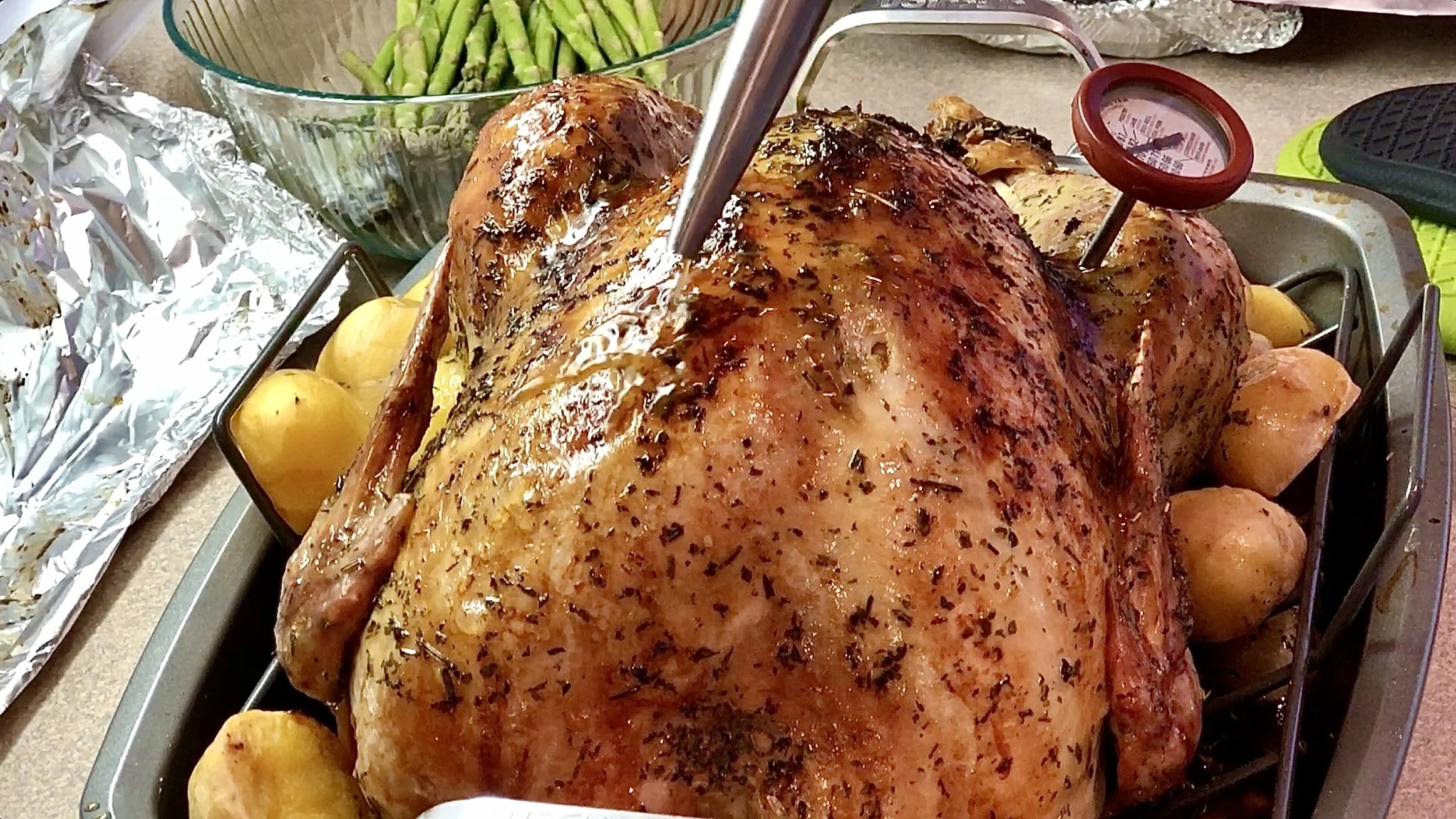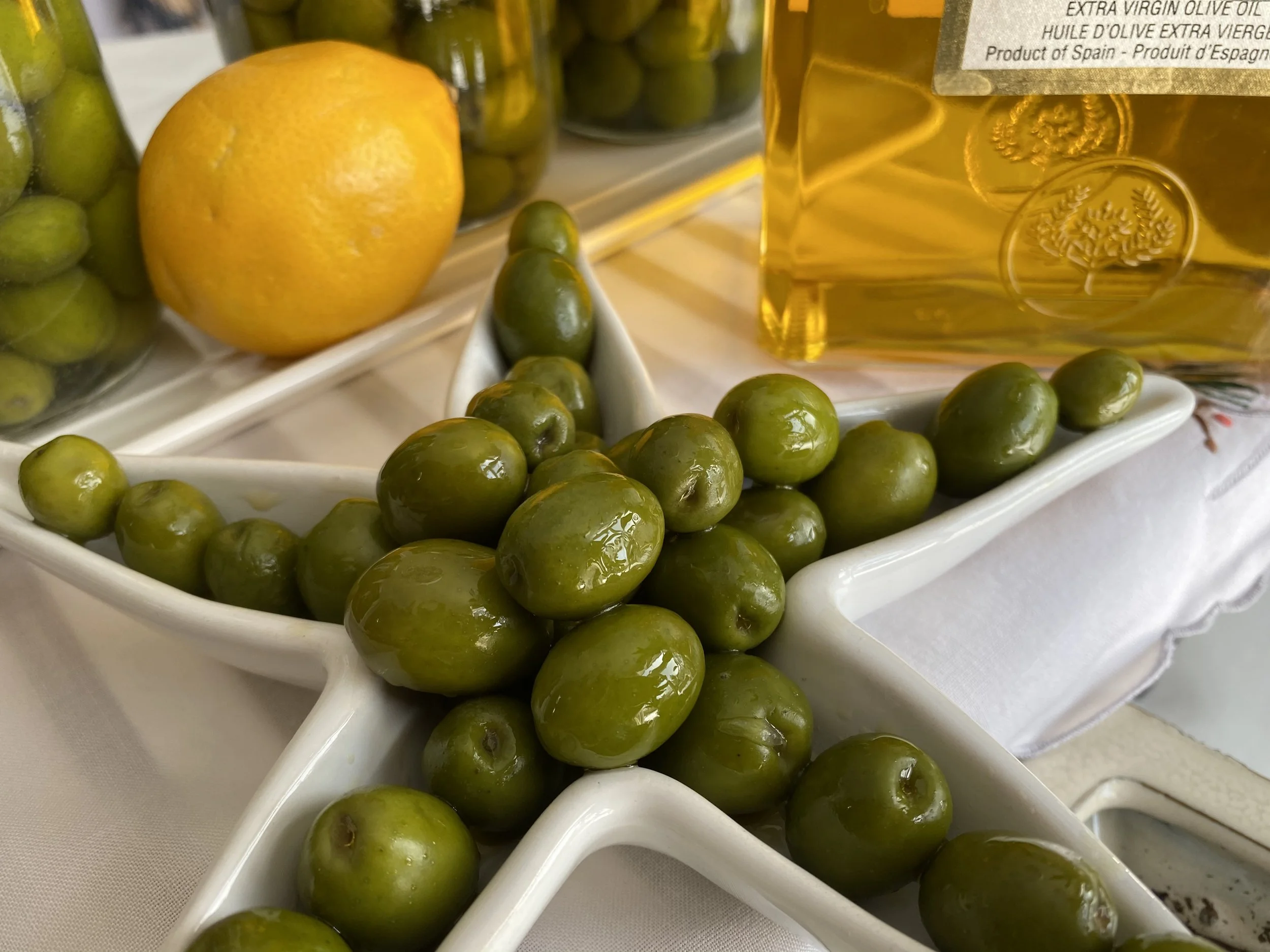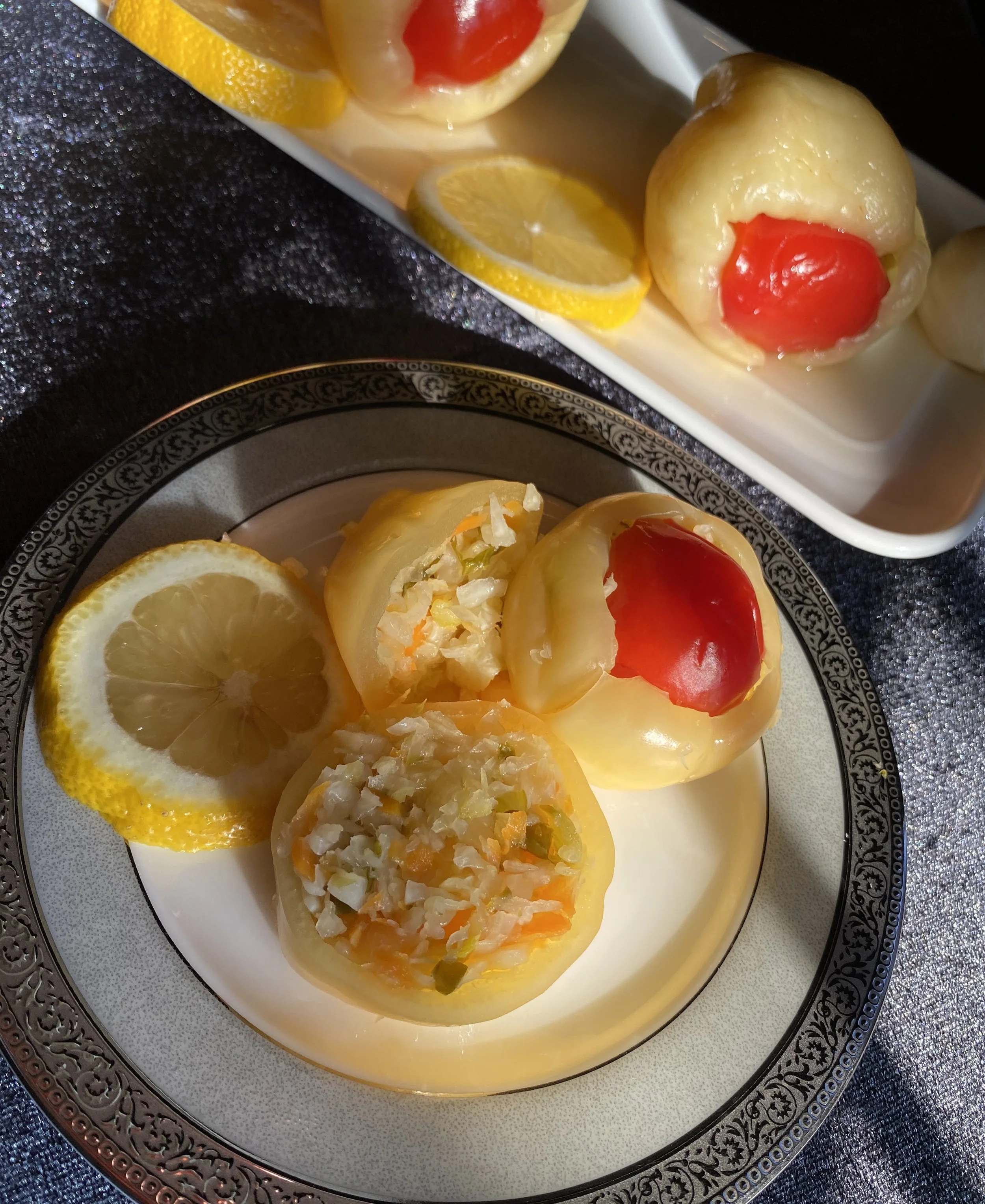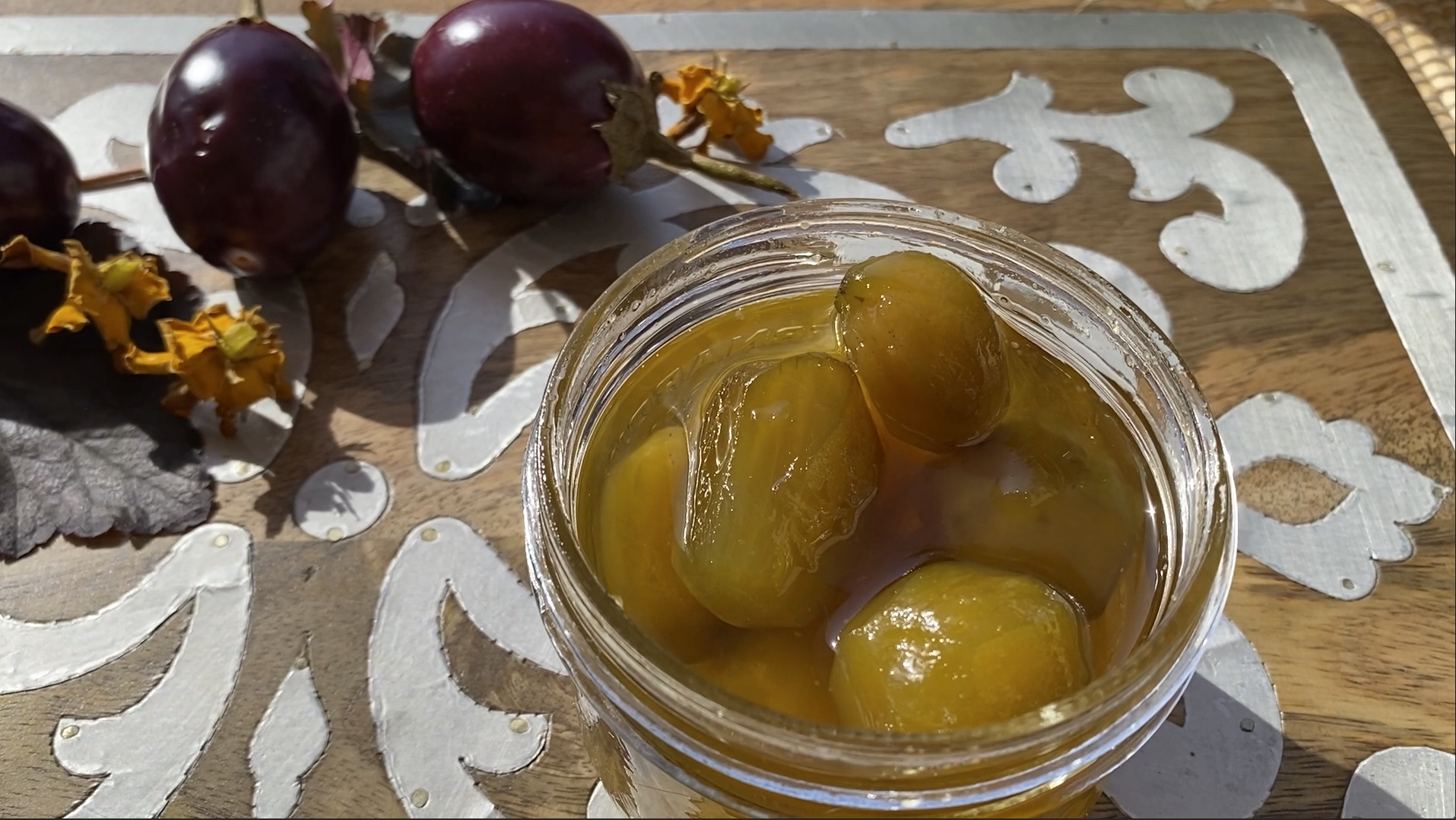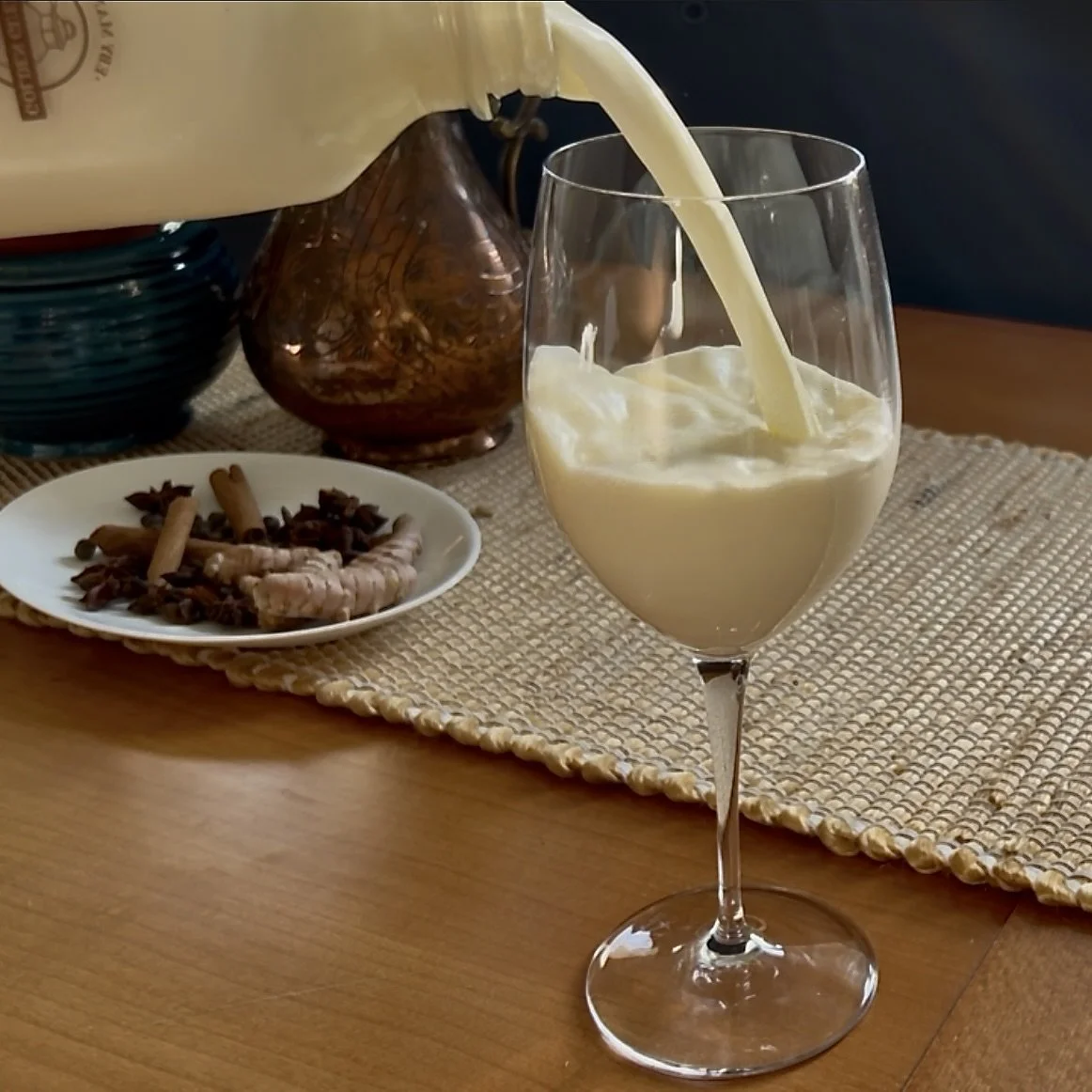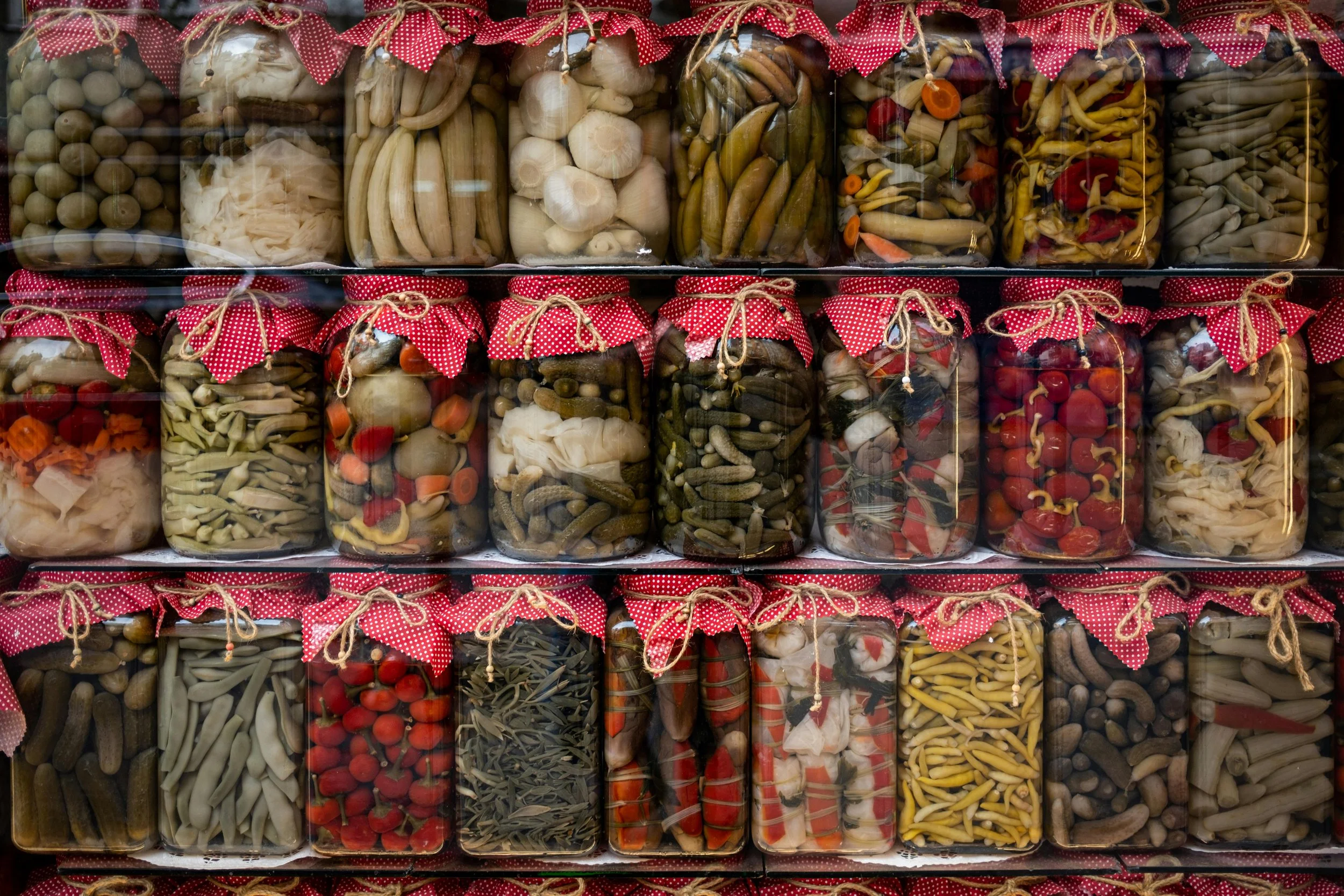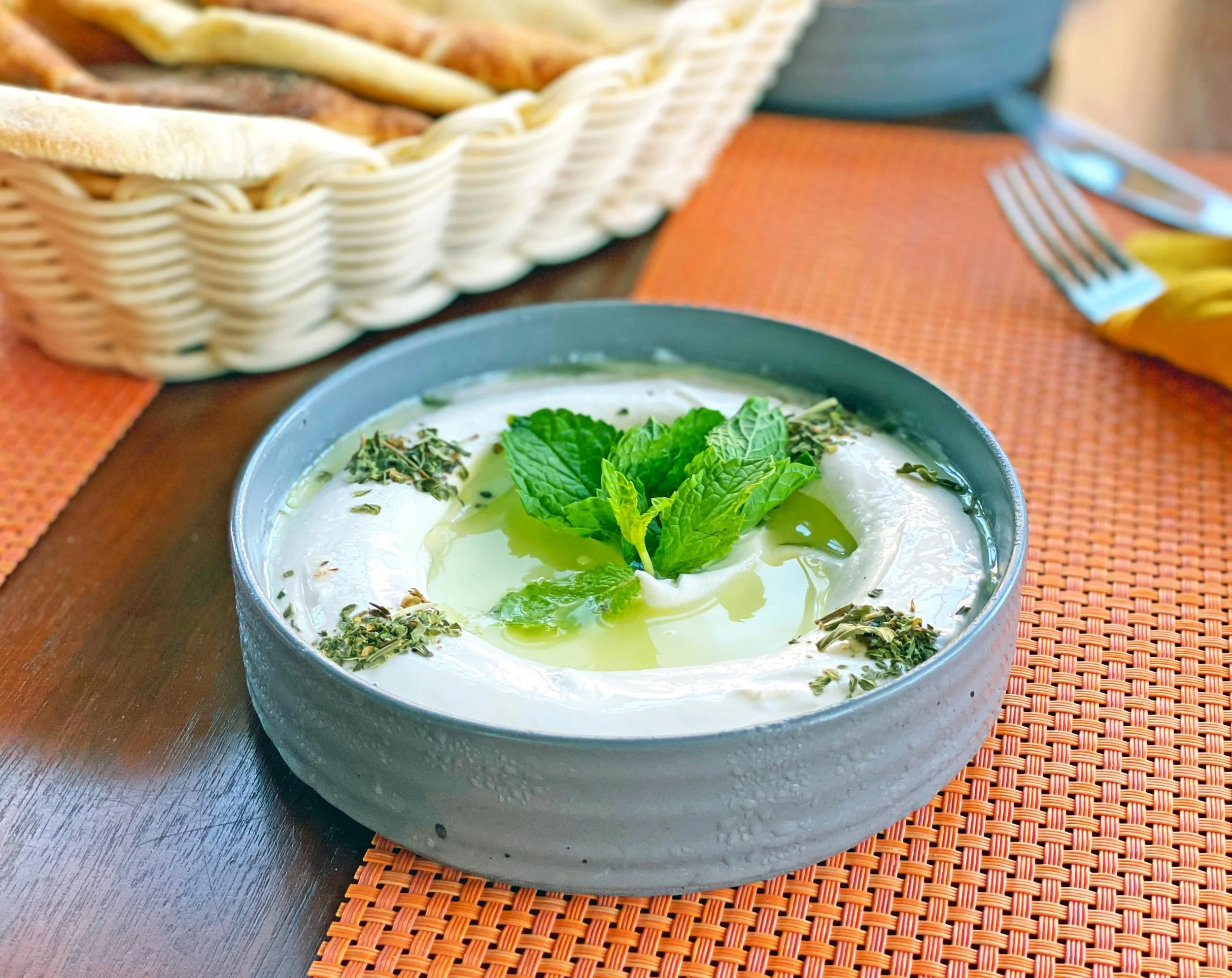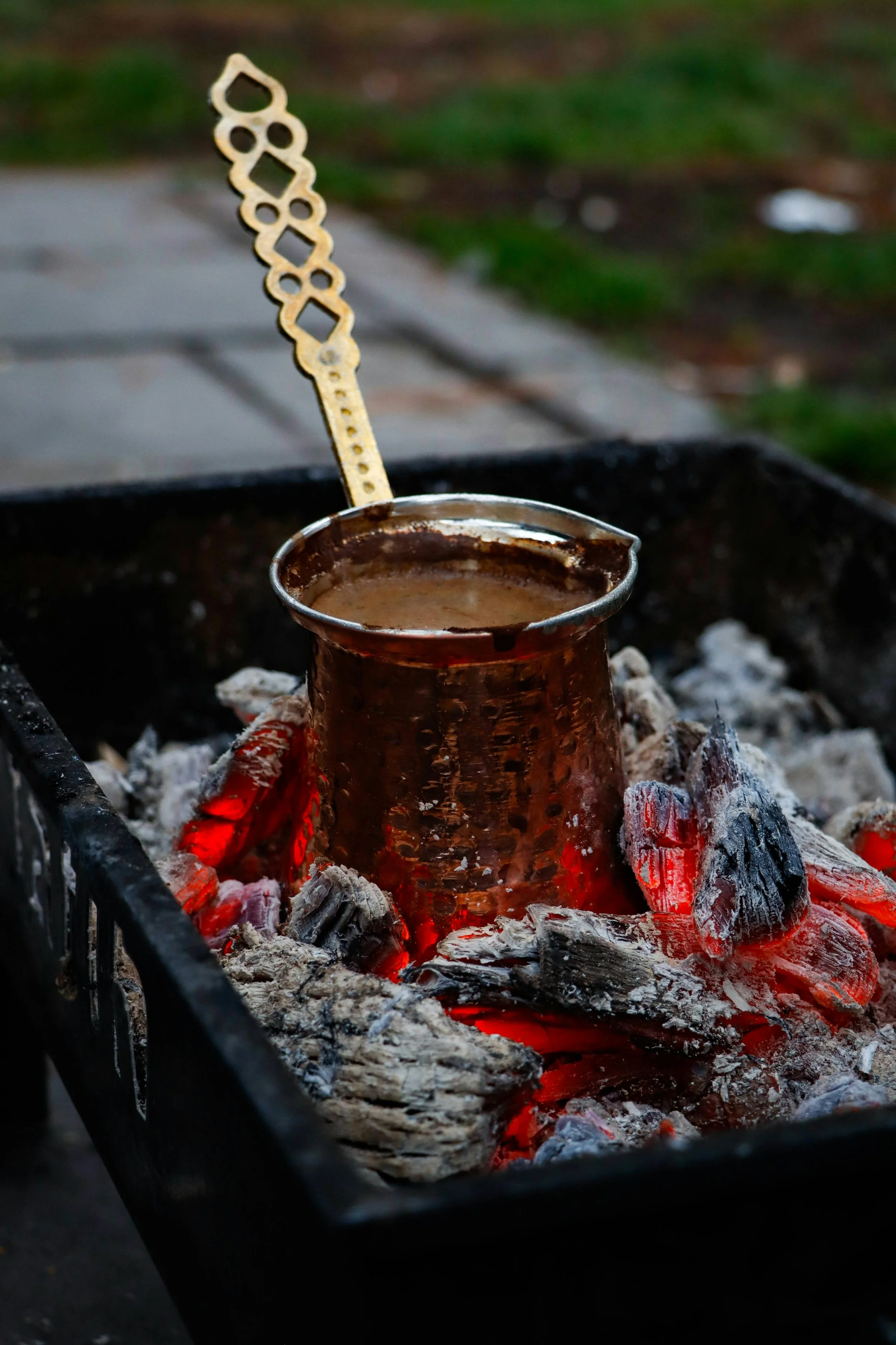Octopus Meze / Ahtapot Mezesi
OCTOPUS MEZE: MEDITERRANEAN STYLE OCTOPUS APPETIZER
Note: By clicking on this video, you allow third parties (YouTube and Google) to access your data. Visit our privacy policy for more info.
What makes this meze special is its simplicity:
Softened octopus, sautéed with bell peppers and garlic, finished with lemon, olive oil, and a scattering of herbs. The ingredients are humble, but together they create something luminous —bright, smoky, briny, and herbal.
Across Türkiye’s three coasts, seafood is a lifestyle. Long tables, salty breezes, and shared meze platters set the stage for the kind of leisure that can’t be rushed. Among the cold and warm meze offerings, few dishes hold the same quiet allure as this garlic-sautéed octopus.
Serve it warm and fresh, nestled among a spread of grilled fish, calamari, seasonal greens, and tangy dips. It’s the kind of dish that makes you feel like you’re on a small boat anchored in a quiet bay, letting the turquoise waves rock your worries away.
To learn more about this culture of slow dinners and meze, read our blog on Chilingir Sofrası: Good Food, Rakı, and the Art of Unlocking Hearts Through Conversation
Ingredients
250 g octopus (softened and boiled)
½ red or yellow bell pepper
½ lemon
7–8 sprigs fresh dill
3–4 garlic cloves
2 tbsp olive oil (for cooking)
1 tbsp olive oil (for drizzling)
1 tbsp balsamic vinegar
1 tsp red pepper flakes
1 tsp dried oregano
½ tsp salt
Directions
PREPARATION
Peel and mince 3–4 garlic cloves, set aside.
Wash, thoroughly drain, and finely chop 7–8 sprigs of fresh dill.
Wash and dice ½ bell pepper (red or yellow).
Cut 250 g of softened, boiled octopus into bite-sized pieces (~2 cm), and set aside.
COOKING
In a medium frying pan, heat 2 tbsp olive oil over medium-high heat.
Add the minced garlic, octopus pieces, and diced pepper.
Sauté for 5–6 minutes, stirring occasionally.
Near the end of cooking, season with:
1 tsp red pepper flakes
1 tsp dried oregano
½ tsp salt
Stir well to bring the flavours together, then remove from heat.
SERVING
Transfer the sautéed octopus to a serving plate.
Sprinkle with the minced dill.
Finish with a drizzle of 1 tbsp olive oil and 1 tbsp balsamic vinegar.
Optionally, squeeze ½ a lemon over the top for brightness.
Serve warm, as part of a seafood spread or with crusty bread and chilled white wine.
[Notes from the Kitchen]
Tender is everything: If using raw octopus, don’t rush the boiling. The texture should be soft but not mushy. Wash it well and boil with 1 tbsp vinegar in water for 30–40 minutes until tender. Then proceed with cutting.
Don’t over-sauté: Garlic and octopus both become bitter when overcooked. Keep the heat at medium-high and stir gently.
Choose your peppers wisely: Red peppers are sweeter and more aromatic, while yellow ones are milder and fruitier.
This meze doesn’t wait: Serve it soon after cooking for the best taste and texture. Reheating is possible, but not ideal.
Local tradition: In Türkiye, this dish is sometimes served over a bed of white beans or spicy wild greens—don’t hesitate to experiment!
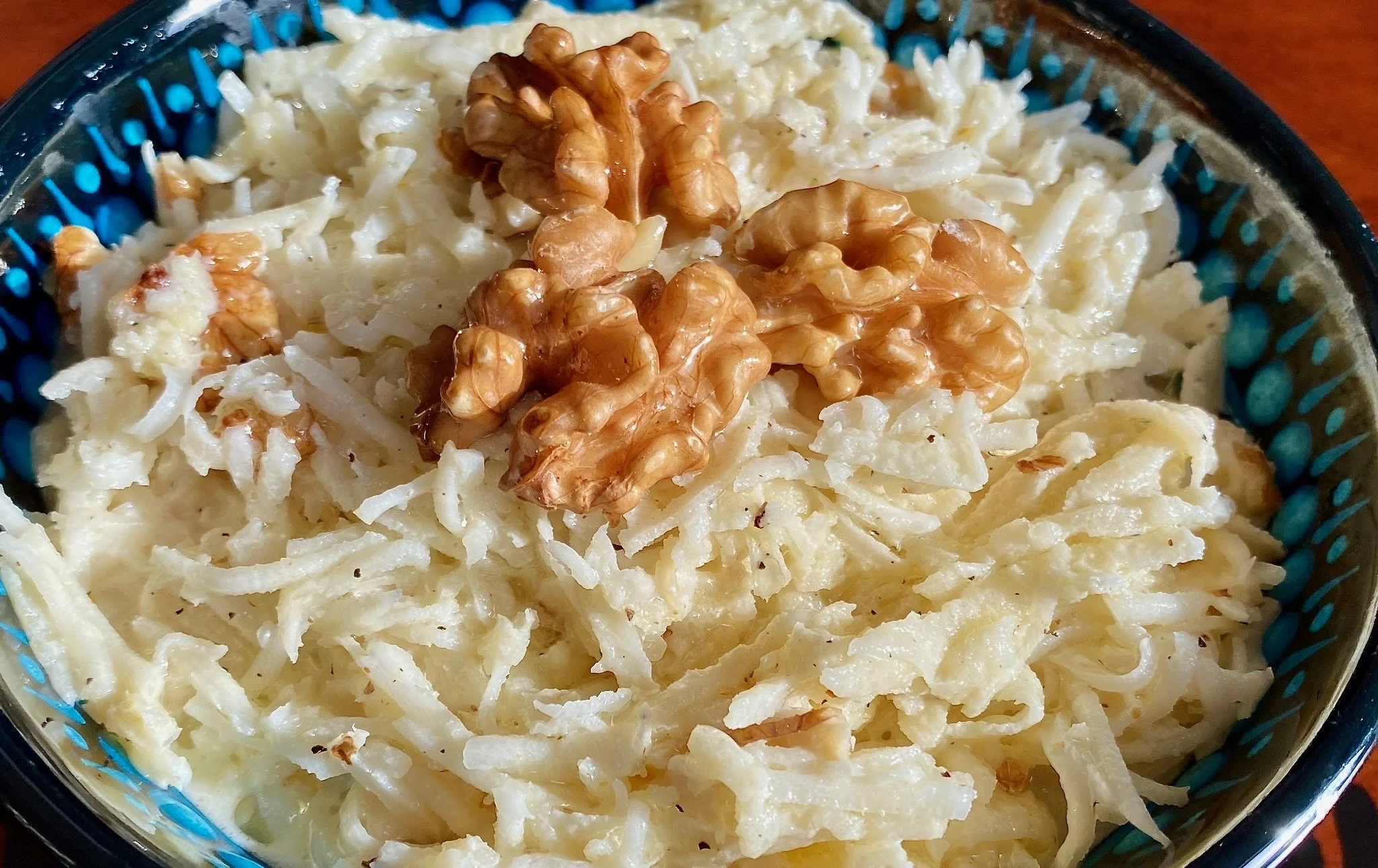
There is a particular kind of hesitation that happens in front of the produce wall…
Somehow, a holiday about light, generosity, and togetherness became the time of year we panic-buy our way into proving we care…
What if the healthiest thing you could do is stop believing everything in the grocery aisle that calls itself “super”?
Discover how baklava evolved from early Central Asian layered pastries to the refined Ottoman masterpiece we know today…
Explore how yoğurt weaves through Turkish cuisine, from soups and mezes to mains, pastries, and desserts... the timeless taste that ties every meal together.
Science confirms what our grandmothers always knew: sitting down together is the recipe for lifelong health.
Eby’s Golden Guernsey milk is the ‘secret’ ingredient that makes our sütlaç, puddings, pochas, sauces, and soups unforgettable…Reminding us why real quality matters.
From jars of tangy probiotic pickles to real fruit leathers and vitamin-rich tarhana soup mix, we share how a Mediterranean family in Canada prepares their pantry for the long winter, with recipes rooted in tradition, adapted for today.
Istanbul’s cuisine is not a story of invention but of conversation, where Thracian settlers, Greek tavern-keepers, Armenian bakers, Jewish exiles, Kurdish migrants, and Ottoman courts all left their mark on the city’s table.
Preserving food wasn’t a hobby. It was survival, celebration, and creativity all at once.
Mediterranean diet is about memory, movement, and meals that satisfy body and soul.
Before it was a health trend, yogurt was medicine, snack, and staple: fermented on horseback, shared across empires, and still echoing in every spoonful today.
Shared meals don’t just feed the body. They knit our hearts together, heal loneliness, and keep old stories alive at the table.
What if tradition wasn’t about perfection or the past… but about adapting wisdom for a better life today?
From leaves to molasses, from sour to sweet — the grape vine carries 10,000 thousand years of Anatolian wisdom into every season.
More than flavour, preservation is geography, memory, and thousands of years of learning to listen to the land…
Before there were books or blueprints, there were mothers—teaching us how to live, protect, and remember.
The future of your health — and the planet — might depend on something as simple as choosing a ripe tomato in season…

